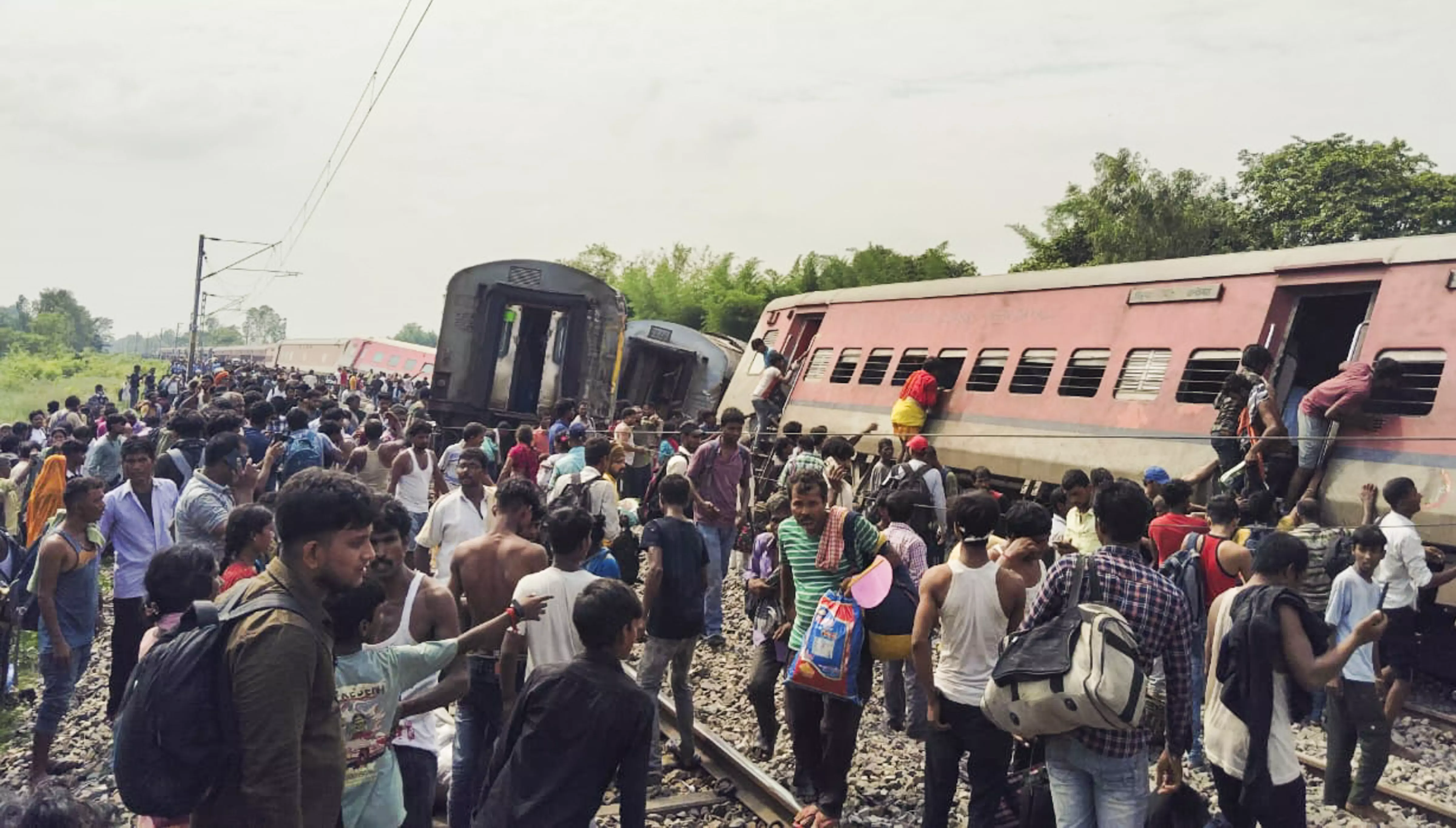
200 train accidents claimed 351 lives in past 5 years: Railways data
Main reasons are reportedly poor track maintenance, outdated infrastructure, inefficient signalling, lack of maintenance, and improper track alignment

Information shared by the Indian Railways from 17 railway zones reveals that 351 people were killed and 970 injured in 200 consequential railway accidents during the past five years.
A consequential train accident is defined by the Railways as one which has serious repercussions that would include loss of life, injuries, damage to railway property, and disruption of rail traffic. The accidents include derailments, fire, collisions, and other such incidents.
Also Read: UP train accident: Death toll rises to 4; high-level probe underway
RTI query
The information was shared in response to a Right to Information (RTI) request from Vivek Pandey, an RTI activist.
A comparison of the fatal casualties across the various railway zones shows that as many as 297 people died in 10 consequential accidents in the South Eastern Zone, including the triple-train accident in Balasore in June 2023.
Also Read: Uttar Pradesh: Sabarmati Express derails near Kanpur; no injuries reported
Safer railway zones with no casualties
Among the safer railway zones that did not have any casualties during the period in question were the Southern Railway, Konkan Railway, North Eastern Railway, and South Western Railway.
During the five years from 2019 to 2024, the Indian Railways disbursed compensation worth Rs 32 crores, including Rs 26.83 crores to the families of those who died.
Main causes of accidents
A senior Indian Railway Traffic Service (IRTS) official told The Times of India that the main reasons for the number of accidents are poor track maintenance and outdated infrastructure. The other issues are inefficient signalling, lack of maintenance of bridges and tunnels, and improper track alignment.
Human error, including due to driver fatigue, lack of adequate training, negligence, signal failures, and communication breakdowns among railway staff are factors that have led to several derailments. Overcrowded passenger trains and overloaded goods trains put extra stress on the tracks increasing the risk of derailment, an activist told the newspaper.
Also Read: Kanchanjunga crash | Initial probe blames lapses by goods train crew, 'excessive' speed
Accidents have reduced: Vaishnaw
Railway Minister Ashwini Vaishnaw, however, said the number of train accidents has come down from 171 accidents per year 10 years ago to 40 accidents per year now.
India’s railway network is one of the busiest worldwide, and transports millions of passengers and huge amounts of freights on a daily basis.

